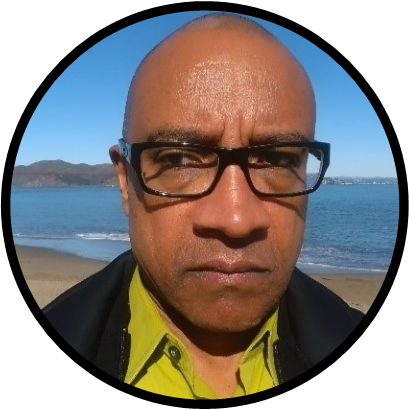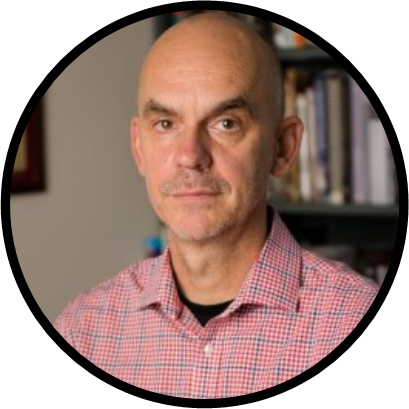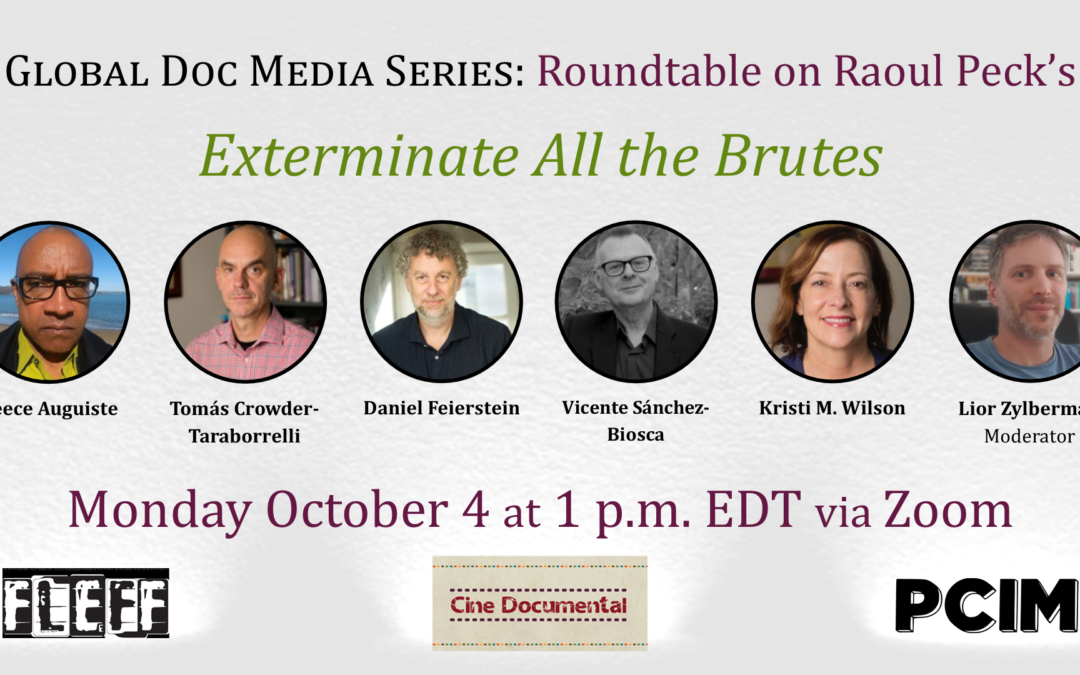The roundtable will be in English and Spanish, with translation.
Monday October 4
10 a.m. (Los Angeles)
11 a.m. (Denver)
1 p.m. (New York/Toronto)
2 p.m. (Buenos Aires)
6 p.m. (London)
7 p.m (Madrid)
8 p.m. (Nairobi/Kuwait City)
9 p.m. (Abu Dhabi)
Join us for a 90-minute roundtable with writers and scholars discussing Raoul Peck’s four-part hybrid documentary series on HBO, Exterminate All the Brutes (2021). Attendees should watch the series on either HBO or Kanopy prior to the roundtable.
From the HBO press release about the film:
“Exterminate All the Brutes, from acclaimed filmmaker Raoul Peck (I Am Not Your Negro, HBO’s Sometimes in April), is a four-part hybrid docuseries that provides a visually arresting journey through time, into the darkest hours of humanity. Through his personal voyage, Peck deconstructs the making and masking of history, digging deep into the exploitative and genocidal aspects of European colonialism — from America to Africa and its impact on society today.
Based on works by three authors and scholars — Sven Lindqvist’s Exterminate All the Brutes, Roxanne Dunbar-Ortiz’s An Indigenous Peoples’ History of the United States, and Michel-Rolph Trouillot’s Silencing the Past — Exterminate All the Brutes revisits and reframes the profound meaning of the Native American genocide and American slavery and their fundamental implications for our present.”
The Global Doc Media Series is part of on-going research and dialogues for the BFI DocMedia Book currently in development.
The series is a collaboration between the BFI DocMedia Book Editorial Collective, the Park Center for Independent Media, the Finger Lakes Environmental Film Festival, and Revista Cine Documental (Argentina), with additional support from the Latin American Studies program at Ithaca College.
Panelists
 Reece Auguiste is Associate Professor of Critical Media Practices and co-founder of the Department of Critical Media Practices at University of Colorado, Boulder. He was a founding member of the critically acclaimed Black Audio Film Collective. His films are Twilight City, Mysteries of July, Duty of the Hour and Stillness Spirit. His writings have appeared in several journals and books including Journal of Media Practice and Education, The British Avant-Garde Film 1926-1995, Questions of Third Cinema, and The Ghosts of Songs: The Film Art of the Black Audio Film Collective. He is a recipient of the Josef Von Sternberg Award.
Reece Auguiste is Associate Professor of Critical Media Practices and co-founder of the Department of Critical Media Practices at University of Colorado, Boulder. He was a founding member of the critically acclaimed Black Audio Film Collective. His films are Twilight City, Mysteries of July, Duty of the Hour and Stillness Spirit. His writings have appeared in several journals and books including Journal of Media Practice and Education, The British Avant-Garde Film 1926-1995, Questions of Third Cinema, and The Ghosts of Songs: The Film Art of the Black Audio Film Collective. He is a recipient of the Josef Von Sternberg Award.
 Daniel Feierstein holds a PhD in Social Sciences by the University of Buenos Aires. He is the Director of the Center for Genocide Studies at the National University of Tres de Febrero in Buenos Aires, Argentina. Feierstein’s books and articles have been critical in the qualification of the crimes committed in Argentina as genocide, established by 9 different tribunals from 2006 on. His most recent books include Genocide as a Social Practice: Reorganizing Society under the Nazis and Argentina’s Military Juntas (Rutgers University Press, 2014) and Memorias y Representaciones. Sobre la elaboracion del genocidio I (FCE, 2012), and Pandemia. Un balance social y político de la crisis del COVID-19 (FCE, 2021).
Daniel Feierstein holds a PhD in Social Sciences by the University of Buenos Aires. He is the Director of the Center for Genocide Studies at the National University of Tres de Febrero in Buenos Aires, Argentina. Feierstein’s books and articles have been critical in the qualification of the crimes committed in Argentina as genocide, established by 9 different tribunals from 2006 on. His most recent books include Genocide as a Social Practice: Reorganizing Society under the Nazis and Argentina’s Military Juntas (Rutgers University Press, 2014) and Memorias y Representaciones. Sobre la elaboracion del genocidio I (FCE, 2012), and Pandemia. Un balance social y político de la crisis del COVID-19 (FCE, 2021).
 Vicente Sánchez-Biosca is a Professor in Audio-visual Communication at the University of Valencia. He was a Fulbright scholar at Madison-Wisconsin and director of the journal Archivos de la Filmoteca (1992-2012). He sat as the chair of Spanish Culture and Civilization at New York University in 2013 and has been a visiting lecturer at the University of Paris 3, Paris 1, Sao Paulo, Montreal, among others. His research in the last two decades has centered on the relation between film and history in three areas: the Spanish Civil War, the Shoah, and the Cambodian genocide (1975-1979). His work on the figure of the perpetrator of mass violence deals specifically with what has been called perpetrator images produced by the criminals or their accomplices, as well as the migration of the images between visual media and their reappropriation for other ends. His books include: Cine y guerra civil española: del mito a la memoria (Alianza, 2006); Cine de historia, cine de memoria: la representación y sus límites (Cátedra, 2006); NO-DO: el tiempo y la memoria (2000) and El pasado es el destino. Propaganda y cine del bando nacional en la guerra civil (2011), both with Rafael R. Tranche (Madrid, Filmoteca España & Cátedra); Miradas criminales, ojos de víctima. Imágenes de la aflicción en Camboya (Prometeo, 2017).
Vicente Sánchez-Biosca is a Professor in Audio-visual Communication at the University of Valencia. He was a Fulbright scholar at Madison-Wisconsin and director of the journal Archivos de la Filmoteca (1992-2012). He sat as the chair of Spanish Culture and Civilization at New York University in 2013 and has been a visiting lecturer at the University of Paris 3, Paris 1, Sao Paulo, Montreal, among others. His research in the last two decades has centered on the relation between film and history in three areas: the Spanish Civil War, the Shoah, and the Cambodian genocide (1975-1979). His work on the figure of the perpetrator of mass violence deals specifically with what has been called perpetrator images produced by the criminals or their accomplices, as well as the migration of the images between visual media and their reappropriation for other ends. His books include: Cine y guerra civil española: del mito a la memoria (Alianza, 2006); Cine de historia, cine de memoria: la representación y sus límites (Cátedra, 2006); NO-DO: el tiempo y la memoria (2000) and El pasado es el destino. Propaganda y cine del bando nacional en la guerra civil (2011), both with Rafael R. Tranche (Madrid, Filmoteca España & Cátedra); Miradas criminales, ojos de víctima. Imágenes de la aflicción en Camboya (Prometeo, 2017).
Coordinators/Moderators
 Tomás Crowder-Taraborrelli is a Visiting Assistant Professor of Latin American Studies at Soka University of America, California, USA. He is an associate producer for ITVS and POV, from the Public Broadcasting Service in the United States. He has been on the editorial board of the journal Latin American Perspectives (LAP/Sage Publications) for the last ten years, serving in the positions of coordinating editor and co-editor of the film section. He is the co-editor of Film and Genocide (University of Wisconsin Press, 2012) and El documental político en Argentina, Chile, y Uruguay (LOM Ediciones, 2015). He also co-edited two special issues for LAP: Political Documentary Film and Video in the Southern Cone: 1950s-2000s (2013), and Media, Politics and Democratization in Latin America (2018). He is currently the co-director of revista Cine Documental.
Tomás Crowder-Taraborrelli is a Visiting Assistant Professor of Latin American Studies at Soka University of America, California, USA. He is an associate producer for ITVS and POV, from the Public Broadcasting Service in the United States. He has been on the editorial board of the journal Latin American Perspectives (LAP/Sage Publications) for the last ten years, serving in the positions of coordinating editor and co-editor of the film section. He is the co-editor of Film and Genocide (University of Wisconsin Press, 2012) and El documental político en Argentina, Chile, y Uruguay (LOM Ediciones, 2015). He also co-edited two special issues for LAP: Political Documentary Film and Video in the Southern Cone: 1950s-2000s (2013), and Media, Politics and Democratization in Latin America (2018). He is currently the co-director of revista Cine Documental.
Respondent
 Kristi M. Wilson is an Associate Professor of Rhetoric and Humanities at Soka University of America. Her research and teaching interests include classics, film studies, gender studies, cultural studies and rhetoric. She co-founded the Stanford film lab and taught at Stanford University for nine years before coming to Soka University. She is the coeditor of Italian Neorealism and Global Cinema (2007), Film and Genocide (2011), and Political Documentary Cinema in Latin America (2014), and author of numerous publications in such journals as Screen, Yearbook of Comparative and General Literature, Signs, and Literature/Film Quarterly. She also serves on the editorial board of Latin American Perspectives
Kristi M. Wilson is an Associate Professor of Rhetoric and Humanities at Soka University of America. Her research and teaching interests include classics, film studies, gender studies, cultural studies and rhetoric. She co-founded the Stanford film lab and taught at Stanford University for nine years before coming to Soka University. She is the coeditor of Italian Neorealism and Global Cinema (2007), Film and Genocide (2011), and Political Documentary Cinema in Latin America (2014), and author of numerous publications in such journals as Screen, Yearbook of Comparative and General Literature, Signs, and Literature/Film Quarterly. She also serves on the editorial board of Latin American Perspectives
 Lior Zylberman holds a Ph.D in Social Sciences. He is a researcher at the National Scientific and Technical Research Council in Argentina (CONICET), a researcher at the Center for Genocide Studies (UNTREF) and Professor of Sociology at the Faculty of Architecture (UBA). He is co-director of Cine Documental journal, and co-editor of Revista de Estudios sobre Genocidio. He is currently conducting research on the representation of genocides in documentary film. He has published numerous articles and book chapters on the subject.
Lior Zylberman holds a Ph.D in Social Sciences. He is a researcher at the National Scientific and Technical Research Council in Argentina (CONICET), a researcher at the Center for Genocide Studies (UNTREF) and Professor of Sociology at the Faculty of Architecture (UBA). He is co-director of Cine Documental journal, and co-editor of Revista de Estudios sobre Genocidio. He is currently conducting research on the representation of genocides in documentary film. He has published numerous articles and book chapters on the subject.
Cosponsored by the Park Center for Independent Media, the Finger Lakes Environmental Film Festival, the BFI Doc Media Book Editorial Collective, Revista Cine Documental and the Latin American Studies Program at Ithaca College.
Producers: Ann Michel and Phil Wilde, Insights International

